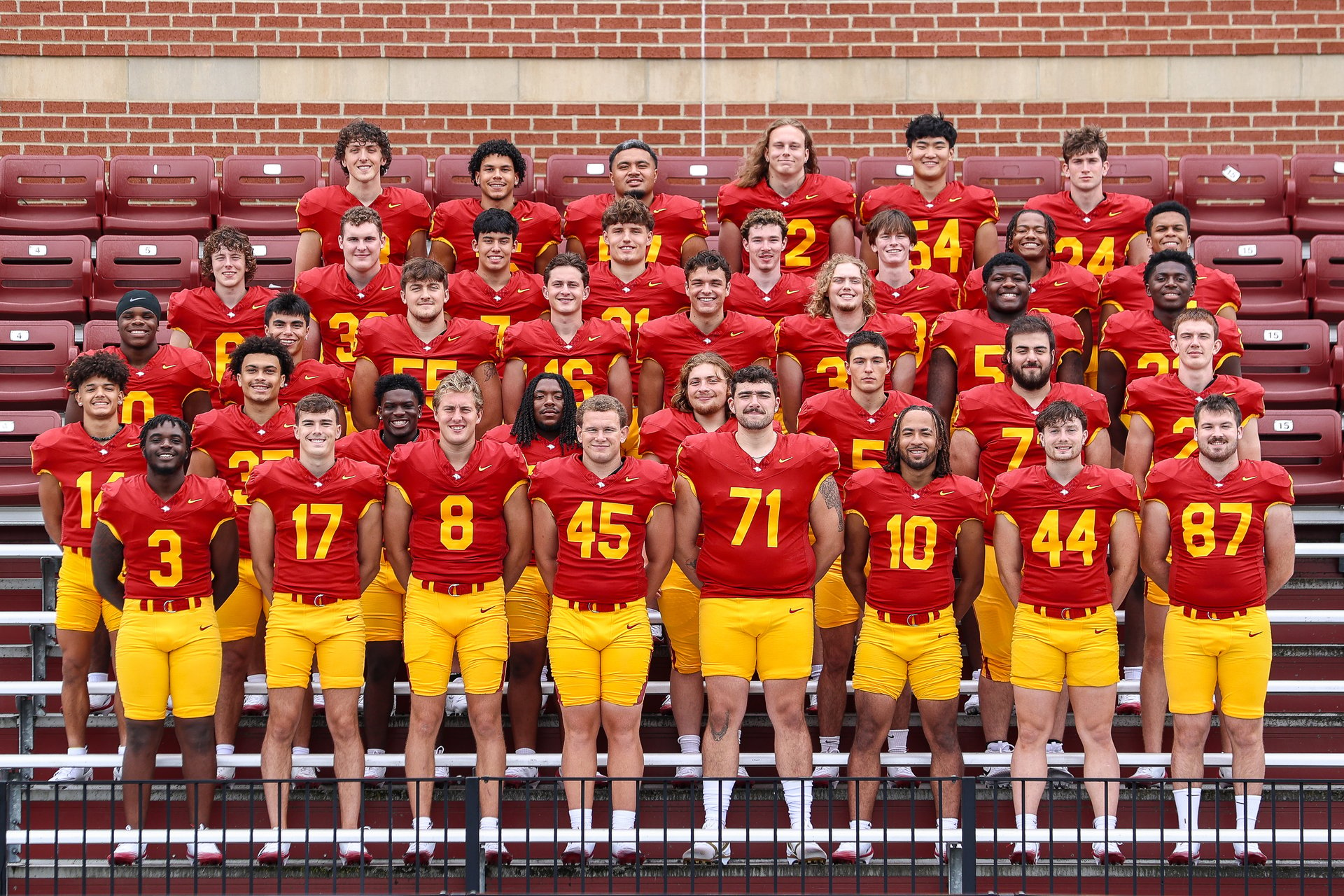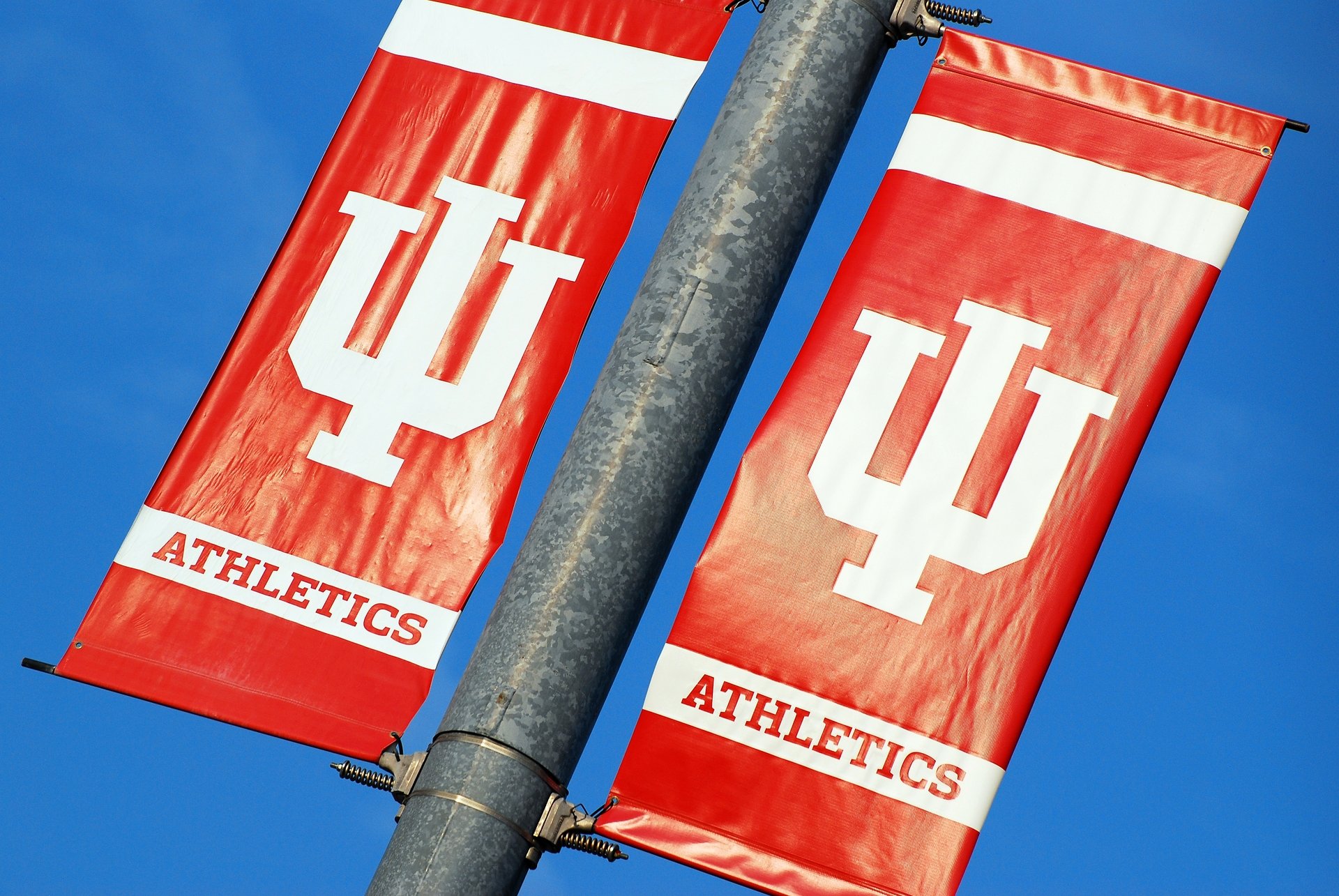Good morning, and thanks for your continued support of Extra Points.
Going to shift our typical schedule here a bit, and turn the time over to Andy, who found something interesting about how at least one SEC school is paying out Alston monies, thanks to FOIA.
When ESPN reported in early April that only 22 of the 130 institutions that compete at the FBS level in college football plan on providing financial academic awards to their athletes this academic year, following the Supreme Court's unanimous ruling in NCAA v. Alston, one could assume that the Southeastern Conference was leading the way in paying its athletes. Nine of the 22 schools that responded to ESPN's voluntary survey that they have plans to provide academic awards this year compete in the SEC, while two others — Oklahoma and Texas — are set to join the conference in the next few years.
That list also doesn't include Alabama; football coach Nick Saban told reporters Alabama is providing academic awards. A school spokesperson told the Tuscaloosa News that the school responded to the ESPN survey, but that the survey didn't include a field for the name of the school.
In order to learn more about just how many athletes are receiving these academic awards and what amounts they're receiving, Extra Points filed a series of public records requests for copies of university documents that outline their expenses from academic awards.
According to a redacted copy of a document from the University of Missouri, Extra Points found that 400 of the 537 the school's athletes, or just shy of 75 percent, who were listed in a document that tracks the athletes' academic incentives earned a combined $874,470 in academic awards in the fall semester of the 2021-22 academic year.
The university has three tiers of awards, including $1,200, $2,000, and $2,990, with the largest amount, when paid in two installments with one for each semester, equaling the maximum allowable annual award amount of $5,980. One-hundred and seventy-three Missouri athletes received the highest-possible, Tier 3 award ($2,990), which is 32.2 percent of all athletes at the school, including those who didn't receive an award; 106 athletes fell in Tier 2 ($2,000) and 121 were in Tier 1 ($1,200).
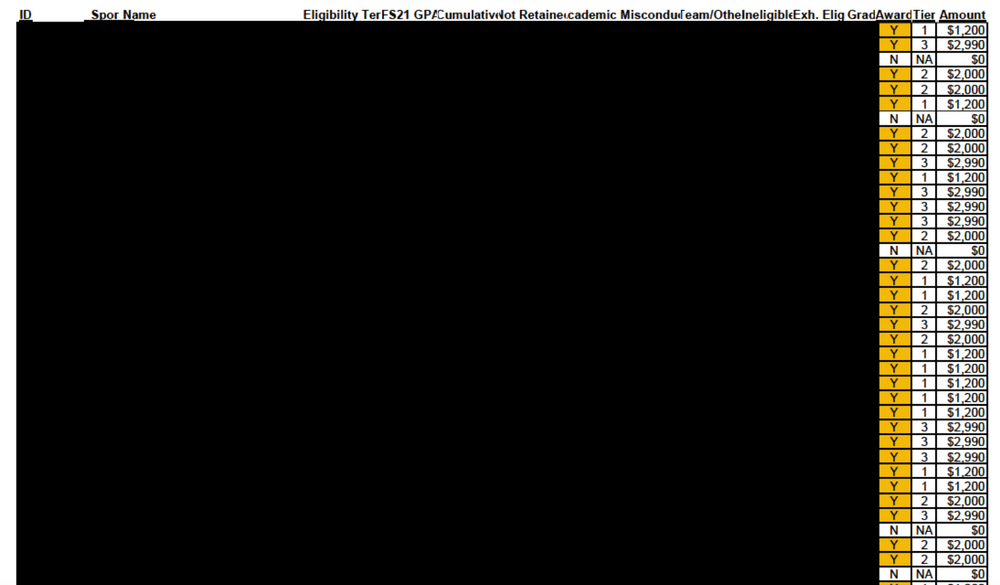
At the time of publishing, a Missouri athletic department spokesperson hasn't responded to a request for comment on how the three tiers of awards are determined — the redacted document includes columns related to academic misconduct and ineligibility, for example — or whether the university determined the tiers of academic awards relative to the team GPA goals that are outlined in some of the school's head coaches' contracts, which allow coaches to receive five or six-figure bonuses annually based on their athletes' academic achievements.
ESPN reported that Missouri athletes can receive $2,400 per year by remaining academically eligible, which would be the Tier 1 award.
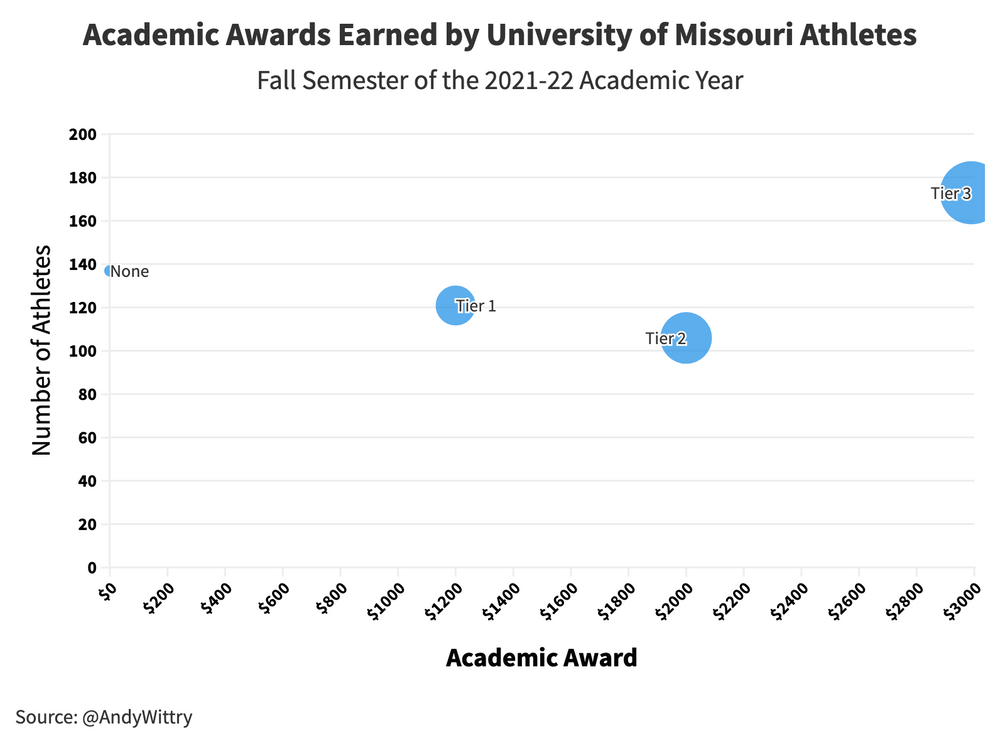
Five other universities that told ESPN they are providing Alston awards responded to public records requests from Extra Points by saying they don't have any responsive documents similar to the one obtained from Missouri, making the Tigers' data all the more informative in regards to one school's approach.
ESPN's story, which was published on April 6, perhaps for the first time applied pressure on a national scale on universities to commit to paying their athletes academic awards, or at least to be more public and transparent with their plans. Three days later, on April 9, the University of Nebraska announced its "N-Vest Nebraska" program, beginning next academic year. West Virginia announced its academic incentive program on April 11, and on April 13, Baylor AD Mack Rhoades told SicEm365 that the university plans on providing academic awards starting in the fall of 2022. Virginia Tech announced its plans on April 14, as Kansas State did on April 20. Ohio State's plans were reported on May 4. The list goes on.
Paying thousands of dollars to students can be big money. But compared to the rest of the athletic department, these awards are still peanuts
If the financial figure of $874,470 from the University of Missouri's academic awards from the fall semester is doubled in order to project the amount owed over the course of an entire school year, it would equal roughly $1.75 million, which would represent just 1.5 percent of the Missouri athletic department's more than $113 million in total operating expenses from the 2020-21 fiscal year.
Missouri's reported total operating expenses in 2021 decreased by nearly $6 million from the previous year due to the pandemic, so as athletic departments budget for academic awards in the future, academic awards will likely represent less than one percent of the athletic department's total budget in a typical year. (A University of Florida athletic department spokesperson told Extra Points in an email that it has budgeted between $2.5 and $3 million for next year.) That slice of the financial pie will get even smaller when conferences' next media rights deals take effect.
Direct payments to athletes through academic awards will represent a fraction of what athletic departments report spending on coaches and support staff members' salaries, benefits and bonuses, and to a lesser degree, athletic student aid.
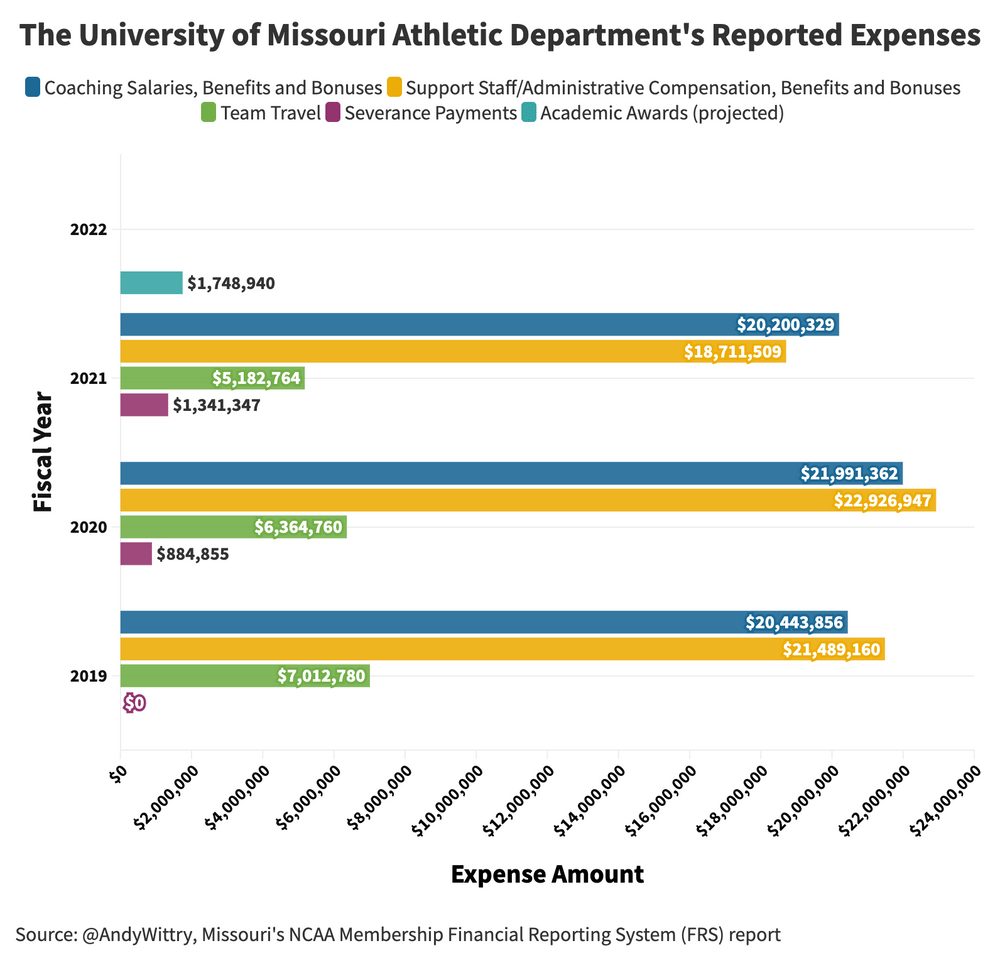
Coaches already receive annual incentive payments for their athletes' academic achievements
For the sake of comparison, Missouri's 15 head coaches or co-head coaches whose contracts are listed on the athletic department's website can earn up to roughly $220,000 annually from academic-related incentives, based on the most recent copies of their contracts. Missouri's Olympic-sport coaches receive a bonus worth two percent of their base salary if their team has an Academic Progress Rate (APR) of 950, meaning the athletes earned 95 percent of the possible eligibility and retention points. For reference, they can receive a bonus worth the same amount if their team qualifies for their sport's NCAA championship or if they're named SEC Coach of the Year.
Women's basketball coach Robin Pingeton's contract states she can annually earn an amount not to exceed $100,000 in academic/social incentives if four of the five goals listed below are met, as long as one of the four is the eligibility/retention goal. The GPA goal in her contract requires 90 percent of scholarship athletes to have a cumulative GPA of at least 2.4, or at least a 2.4 GPA during the academic year.
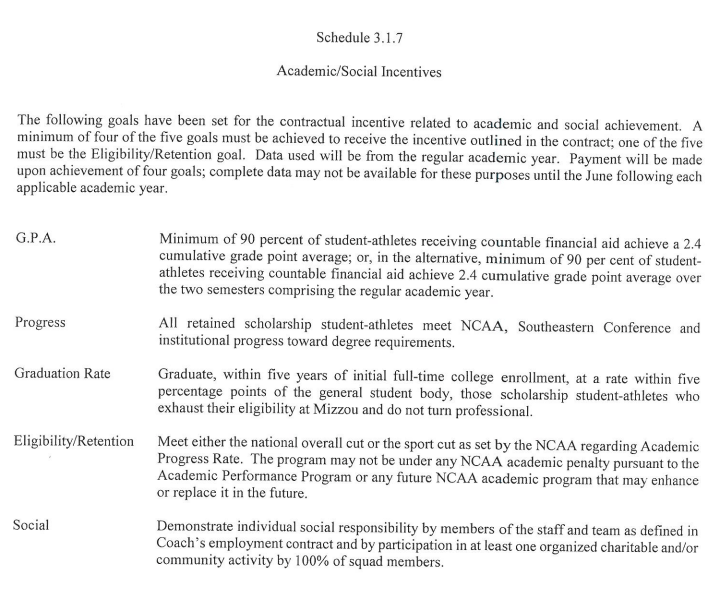
Missouri women's basketball coach Robin Pingeton's academic/social incentives.
ESPN reported that University of Missouri athletes need a GPA of at least 3.5 to receive the full academic award offered by the university — $2,990 per semester — which is 1.1 grade points higher than the stated GPA goal in Pingeton's contract and 0.7 points higher than football coach Eli Drinkwitz's goal of a 2.8 team GPA achieved during the academic year among players who are on the team's active roster prior to the first game of the season. Drinkwitz can earn up to $25,000 from his academic/social incentives.
Recently hired men's basketball coach Dennis Gates can earn up to $50,000 in academic/social incentives, according to his memorandum of understanding.
While Pingeton's potential $100,000 bonus is greater than most of her peers, academic-based incentives are standard, because academics are contractually part of the job. In Purdue women's basketball coach Katie Gearlds' contract, for example, 15 percent of her time is allotted to "academic student-athlete support," which is three times the percent dedicated to "strength and conditioning/wellness."
The average maximum academic bonus that women's basketball head coaches at Power 5 schools can earn in a given year is roughly $40,000. If every player on a college basketball roster — say, 15 players — earned the maximum of $5,980 in academic awards in an academic year, that would be just shy of $90,000, but the individual payouts for each athlete are typically much, much lower compared to their head coach — if academic awards even offered at their school — and sometimes athletes are faced with a higher academic bar to clear in order to get paid.
TL;DR? More schools are likely to start these academic payouts. But big picture, they're still just a drop in the bucket
Even if schools decide to offer their Alston awards more generously than Missouri by, say, offering the full amount to any athlete who remains academically eligible, rather than requiring higher benchmarks, then that spending will still likely represent a tiny percentage of the overall athletic budget. Furthermore, based on current contracts, coaches are likely to earn larger individual financial bonuses for athletes hitting academic benchmarks than any athlete will.
Will those contracts change in a post-Alston world? Will schools find other, more aggressive ways to directly compensate athletes?
We'll have to see.
But our guess is that whatever the next frontier in athletic spending is, we'll see it first in the SEC.
This edition of Extra Points is brought to you by Joker Mag.

Sports are full of underdog stories, but there's never been an easy way to find them. Until now. The Underdog Newsletter uncovers the best sports stories that you won’t hear anywhere else.
Shaq Barrett was an undrafted special teamer before leading the NFL in sacks. Billy Wagner was a 5’5″ high school senior who played D3 baseball before becoming one of the best closers in MLB history.
Subscribe here for more stories like this in your inbox every month!
This edition of Extra Points is also brought to you by Ghost.
Ghost is the CMS that supports Extra Points. It's what we used to host and send the newsletter, build our website, and host all of our FOIAs. Many of my readers are in the newsletter or content business, and if you're looking for publishing tools, I'm happy to recommend Ghost, a rare newsletter service that doesn't take a percentage of your subscription fees, while also integrating with the best tools on the internet.
If you're looking to start a newsletter, or move your existing project to a new service, check out Ghost. And if you do, use this link, which gets me a commission that will help bring down my own hosting costs. And feel free to drop me a line, I'm always happy to talk newsletter shop.
Thanks for reading, everybody. Feel free to ping me at [email protected], tweet me at @MattBrownEP, hit us up on Instagram at @ExtraPointsMB, or troll us on Reddit at /r/extrapointsmb. Questions about ad sales or sponsored posts can be sent to [email protected]












